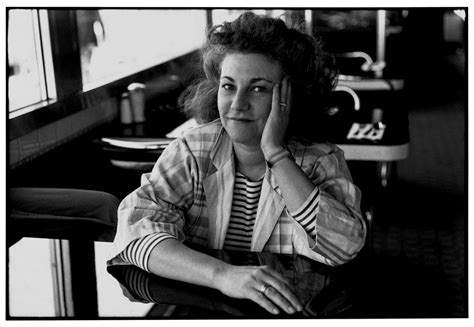A Quote by Mark Twain
The cat, having sat upon a hot stove lid, will not sit upon a hot stove lid again. Nor upon a cold stove lid.
Related Quotes
In the beginning this is bound to happen. You have been sitting on the lid that covers your repressions, and you have been riding on that lid a long time, trying continuously to hold down everything beneath it. To become a witness means that you have finally jumped off the lid; now you will only stand aside and will not do anything. Now you will no longer repress, now you will just witness. So everything suppressed will arise, all the repressions will catch fire; you will find flames leaping where there were only ashes.
There's little to see, but things leave an impression. It's a matter of time and repetition. As something old wears thin or out, something new wears in. The handle on the pump, the crank on the churn, the dipper floating in the bucket, the latch on the screen, the door on the privy, the fender on the stove, the knees of the pants and the seat of the chair, the handle of the brush and the lid to the pot exist in time but outside taste; they wear in more than they wear out. It can't be helped. It's neither good nor bad. It's the nature of life.
It was my first day working at Tour d'Argent, a famous restaurant in Paris, in 1982, and they were celebrating their 400th anniversary. I am in the fish station and after many mistakes, including cutting myself after 30 seconds in that kitchen, the chef said, "Make a Hollandaise sauce with 32 yolks." It takes me forever to separate the yolks from the whites, and I put them in a bowl and try to go close to the stove, but the stove is way too hot for me.
If you put fleas in a shallow container they jump out. But if you put a lid on the container for just a short time, they hit the lid trying to escape and learn quickly not to jump so high. They give up their quest for freedom. After the lid is removed, the fleas remain imprisond by their own self policing. So it is with life. Most of us let our own fears or the impositions of others imprison us in a world of low expectations.




































